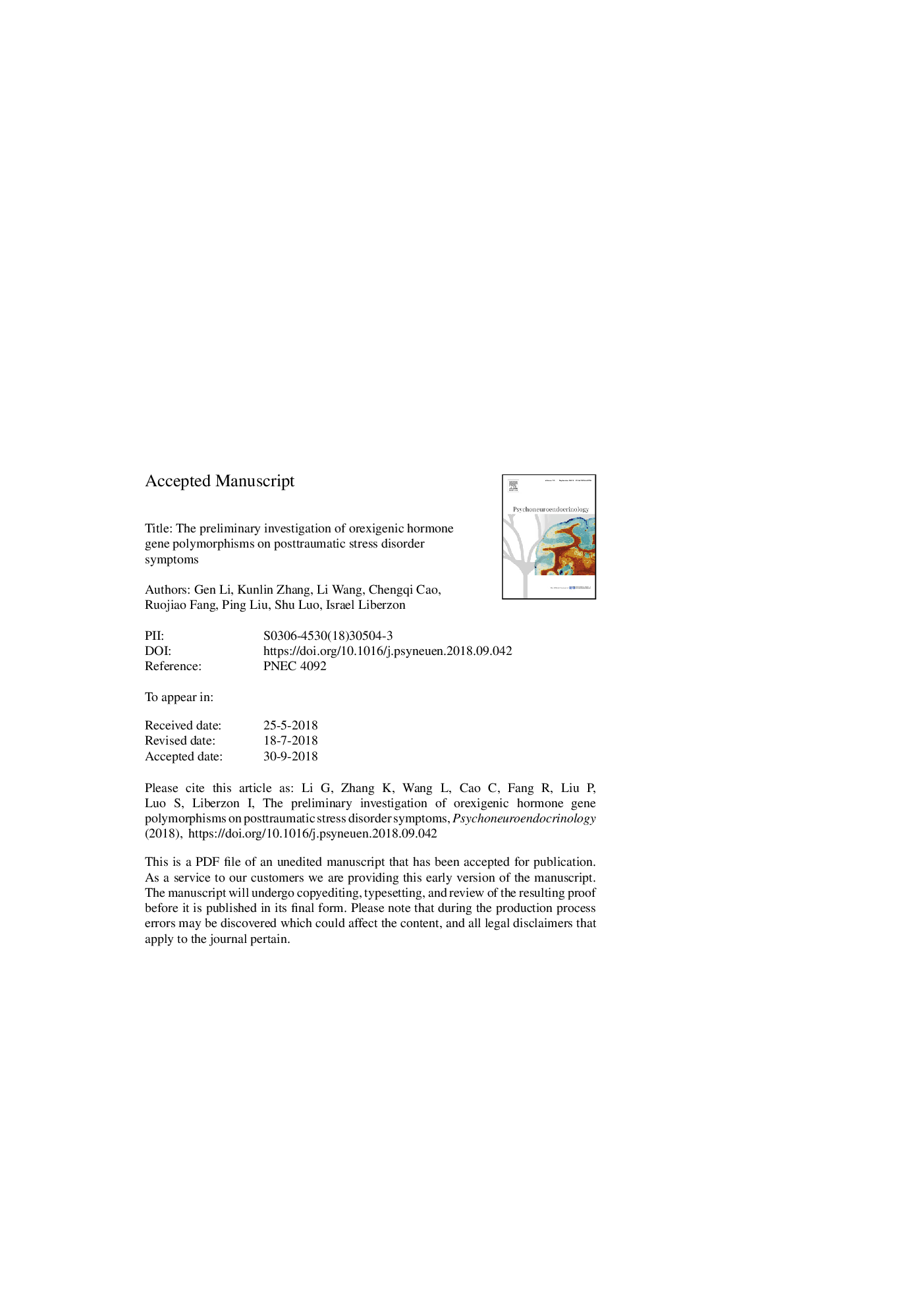| Article ID | Journal | Published Year | Pages | File Type |
|---|---|---|---|---|
| 11263432 | Psychoneuroendocrinology | 2019 | 24 Pages |
Abstract
Orexigenic hormones are a group of hormones that can up-regulate appetite. Current studies have shown that orexigenic hormones also play important roles in stress responses and may be implicated in regulation of fear memory. However, these conclusions lack evidence from human studies. In this study, we examined associations between orexigenic hormone genes and fear-related mental disorders by investigating main, GâÃâE, and GâÃâG effects of ghrelin and orexin gene single nucleotide polymorphisms (SNPs) on human posttraumatic stress disorder (PTSD) symptoms in 1134 Chinese earthquake survivors. SNPs Leu72Met of the GHRL gene (rs696217), Ile408Val of the HCRTR1 gene (rs2271933) and Val308Ile of the HCRTR2 gene (rs2653349) were genotyped. None of the SNPs showed significant main or GâÃâE effects. However, a significant interaction effect between GHRL rs696217 and HCRTR1 rs2271933 was found to predict the PTSD Checklist (PCL-5) total score (Pâ=â 0.007). Further analysis revealed different interaction patterns in males and females. For females, the rs2271933 G allele was associated with an increased PCL-5 total score (B = 2.59, Pâ=â 0.024) when the rs696217 genotype TT/TG was present. For males, the rs696217 T allele is associated with an increased PCL-5 total score (B = 3.62, Pâ=â 0.040) when the rs2271933 genotype GG/GA was present. These current findings expand our knowledge of physiological function of the orexigenic hormone system, and suggest its involvement in development of fear-related mental disorders such as PTSD.
Related Topics
Life Sciences
Biochemistry, Genetics and Molecular Biology
Endocrinology
Authors
Gen Li, Kunlin Zhang, Li Wang, Chengqi Cao, Ruojiao Fang, Ping Liu, Shu Luo, Israel Liberzon,
